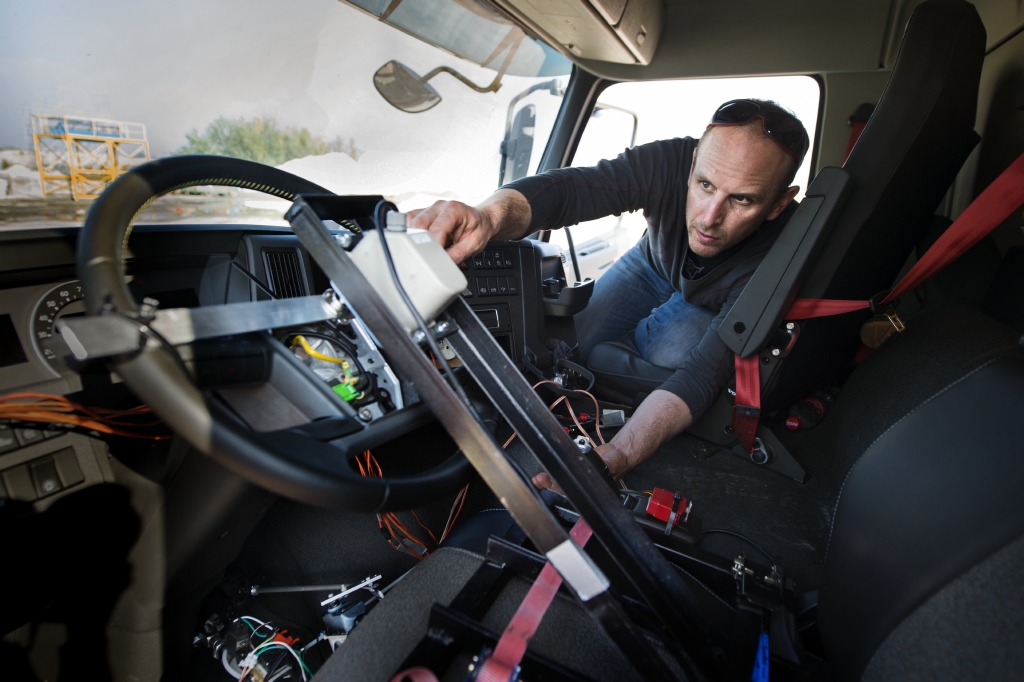The stunt comes as part of the Swedish brand’s Live Test series, which showcases the performance and capabilities of Volvo’s truck lineup. Over the short video, Sophie pilots the heavy-duty FMX through an obstacle course, one littered with swinging boxes, fireworks, and a concrete building that she promptly smashes through. At one point, Sophie rolls the FMX down a hill, but the truck takes it like a champ.
The film is likely staged — the cameras are set up in just the right position to capture each of the child’s “mistakes” — but it’s all in good fun, and the film does display some of the FMX’s high-tech features. The vehicle boasts Automatic Traction Control, which is essentially all-wheel drive that only activates when needed to save fuel, as well as improved steel bumpers and skid plates. If Sophie’s escapade is any indication, they appear to work just fine. The FMX’s cabin also features a tough, welded “body in white” design to protect its occupants.
Despite its utilitarian commercial products, the Volvo Trucks YouTube channel is chock-full of silliness. Last year, the company premiered a video that depicts an unsuspecting valet driver who is forced to park a massive FH truck, and in 2013, the brand’s famous “Epic Split” ad featuring Jean Claude Van Damme hit the Web. Stay tuned for more entrants from Volvo’s Live Test series.







